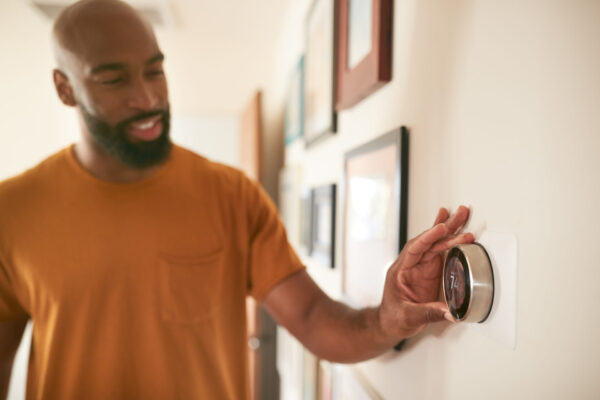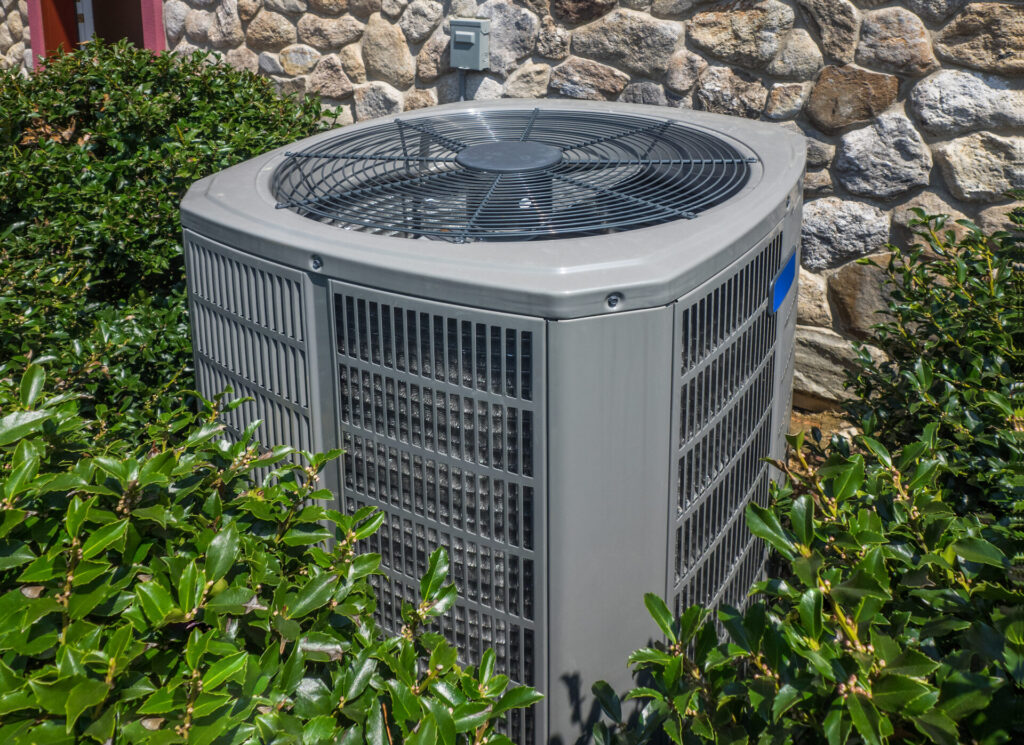
With November well underway, many of you across Middle Georgia are now doing something we seldom have a reason to do: turn on the heat!
As temperatures slide down into the wintry range, homeowners who rely on a heat pump for their HVAC needs may have questions about how the same system that kept them cool all summer can suddenly keep them warm through the colder months. If we didn’t know any better, we’d say it’s magic!
Fortunately, we do know better. Here are some things you should know about your heat pump and how it manages to be a welcome addition to your home all year long.
1: Your Heat Pump Really Does Just Pump Heat
A heat pump may be a complex mechanical device with multiple fans and motors, a compressor, control systems, evaporators, and something called an expansion valve, but what it does is right there in the name: it pumps heat.
In the summertime, it uses the expansion of a gas called refrigerant (commonly called “Freon”) to cool air that enters your home. Except it doesn’t. As we discussed last month, there is no such thing as cold, just the absence of heat. So, like every other air conditioner out there, a heat pump in cooling mode just removes heat from the air inside your home and pumps it to the outside.
In the winter, it uses the exact same process, but in reverse. Instead of removing heat from the inside air and pumping it into the great outdoors, it takes heat out of the air outside and pumps it into your living room so you can climb out from under that blanket.
“But it’s cold outside! Where’s it getting this heat you speak of?” While some older heat pumps struggle to warm up your home once the temps drop below a certain point, for most heating applications here in Middle Georgia, there’s more than enough heat in the air outside to evaporate the refrigerant in your system and transfer that heat to the interior of your home.
2: Sometimes, Your Heat Pump Needs Some Help
Particularly in older models, when the air outside reaches a certain point, your heat pump may have trouble pumping in enough heat to keep your house warm. To help it out, many heat pumps contain a supplemental heat source. These almost always take the form of small electric heating elements (we call them “heat strips”) that work just like a traditional forced-air heater: an electric current passes through the heating elements, causing them to glow red hot, and air that’s forced through the elements gets heated up and vented into your house.
If you have a heat pump but are still cold during the winter evenings, look on your thermostat for an “Emergency heat” setting. When that option is turned on or selected with the mode switch, the heat strips will power up and give your heat pump an extra kick.

3: Your Heat Pump Uses Refrigerant To Keep You Warm
We know it sounds weird – a gas called refrigerant can keep you warm? Absolutely.
As mentioned above, the heating cycle of a heat pump is identical to the cooling cycle; it just runs in the other direction. In both cases, heat in one location heats refrigerant, which evaporates and moves into a condenser. In the condenser, it releases that heat, which a fan blows into another location. Whether that heat is moving into or out of your house is the only difference between “heating” and “cooling.”
Knowing that, then, you can see that having your heat pump properly serviced with the correct amount of refrigerant isn’t just a summertime issue; it affects your system’s ability to heat, as well. If your heat pump isn’t keeping your house as warm as it used to, you may have a refrigerant leak, causing your system to lose efficiency and effectiveness.
4: Your Heat Pump Is Saving You Money
In engineering, a common discussion point is the efficiency of a system – how much “work” (in this case, how much heat it puts out) in exchange for how much energy is put into it. Since scientists measure heat and other forms of energy with the same general units, heating efficiency is pretty easy to calculate.
Even though heaters are some of the most efficient electrical devices, the laws of physics demand that an electric heater can only ever operate at a theoretical efficiency of 100% – one watt of heat produced for every watt of electricity consumed. (In practice, even the best heaters never get above about 95%.)
Heat pumps exploit a loophole in that mechanic. By moving heat instead of creating heat, the theoretical maximum is no longer an issue – and so a heat pump’s heating efficiency is usually 3-400%, putting out three to four times more heat than it consumes in electricity.
5: Heat Pumps Are Getting Better All the Time
Older heat pumps are definitely better at cooling a house than warming it. That’s one reason homeowners in the northern US are just now getting onto a train that people in the southern US have been riding on for more than forty years.
Newer units are flipping the script a little. As refrigerant formulas and other technologies improve, heat pumps become better able to heat a house, even in the coldest climates. Newer units can bring a house up to comfortable levels even when the temps outside plunge into arctic levels. Heat pumps have almost entirely replaced traditional heating systems for homes in Scandinavia, where even the polar bears think, “Man, it’s cold out here!”
And, as heat pumps get better at heating, they get even more efficient at cooling. So, even here in Middle Georgia, where summers sometimes seem like they last four or five years, a heat pump might not be a bad idea for your next HVAC system.
Hot? Cold? Call the Man! Pruett Air Conditioning Carries a Full Line of Efficient Carrier Heat Pumps.
There’s no need to bundle up! When you have heating needs, let Pruett do it! Our technicians are ready to install your new efficient Carrier heat pump! Call today: 478-225-4921
Pruett Air Conditioning has offices in Warner Robins and Eastman, GA, so no matter where in Middle Georgia you’re located, Pruett is your local HVAC company.
- Bonaire
- Byron
- Centerville
- Cochran
- Dublin
- Eastman
- Fort Valley
- Kathleen
- Macon
- McRae
- Perry
- Warner Robins
